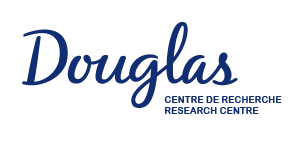July 2025 –Trainee spotlight
Supervisor: Dr. Linda Booij
Current program: PhD
Year of Study:entering PhD 3
Program of Study:Clinical Psychology (Concordia University)
Why did you choose to come to the Douglas?
During my second year as a graduate student in my program (considered Master’s level for the first two years), my supervisor Dr. Booij started involving me in projects at the Douglas Eating Disorder Continuum (EDC), a renowned clinic and program. As someone with an interest for integrative clinical research, and for eating disorders specifically, the Douglas represented a dream establishment for my training. When she moved here full-time to become Head of Research of the EDC and proposed for me to come along for my PhD research, it was a no-brainer. The Douglas meant opportunities – not only for high-quality research and collaborations – but for meaningful contributions to clinical care. As an aspiring clinician-scientist, working at the Douglas opened doors for building an array of skills; from clinical intuition to statistical expertise, passing by neuroimaging knowledge.
What did you do before coming to the Douglas?
Before coming to the Douglas in 2023, I had been working with Dr. Booij at Concordia on various projects studying eating disorders in youth. Notably, I had the chance to collaborate with the CHU Sainte-Justine on pediatric eating disorder intervention projects, and to work on large-scale community cohort data (QLSCD). Before my graduate studies, I completed an undergraduate degree in Honours Psychology at McGill University, where I developed my interest in research via two theses, one in child development and one in eating disorders.
Additionally, throughout my training before and since coming to the Douglas, I have collected clinical experiences that have informed my research, such as internships at the Douglas Eating Disorder Continuum (I know, shocking), at Concordia’s Applied Psychology Center, and most recently, St-Mary’s Hospital.
Sell your research :
Eating disorders are thought to develop and be maintained by interactions of biological, psychological, and sociocultural factors. My research seeks to better understand how certain early risk factors, such as executive functions, and neurodevelopmental processes, such as neuroanatomy and connectivity, contribute to symptoms of eating disorders in youth. To do so, I use a variety of designs, including large-scale clinical databases and neuroimaging techniques.
What excites you most about your research?
What excites me most are the possibilities. The possibilities of building on what has been done in the past, to inform what will be done in the future. I want to see a future where clinicians and scientists can understand eating disorders in all its multifactorial essence, and where we can be confident in treating them. Research is always evolving; I can already see from my own experiences that it is possible to improve it, and I am excited for what is to come in this field.
If you could go back in time and give your “younger self” advice, what would you do differently?
First, stop doubting yourself. Even crazy ideas and dreams should be nourished, and there is no point in thinking that you do not deserve something when you have worked hard for it (I eventually learned that). Second, this field is competitive and hard to navigate sometimes. Building connections is important; find colleagues and friends you can lean on, and don’t be afraid to ask questions when you are not sure what you are doing. Finally, it is okay to not know right away what you want your career to look like and to change your mind on your interests. After 7 years of university, I still do not have a clear plan.
Please share any additional experiences or advice that you’d like to share with prospective Douglas trainees.
Take advantage of the wonderful opportunities and network at the Douglas, and don’t build a crazy schedule like me that makes it hard to keep up!


